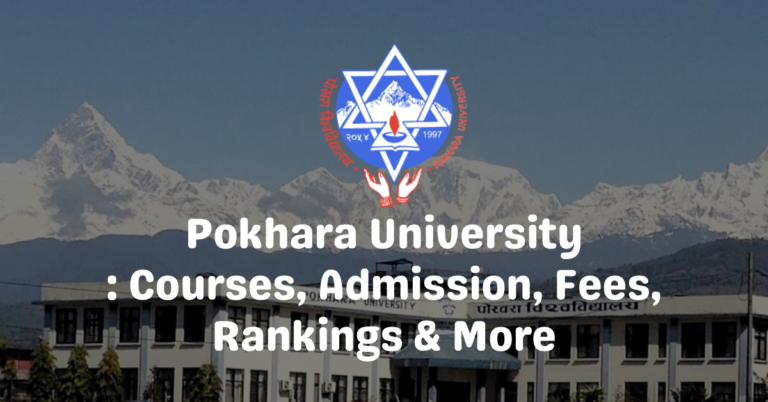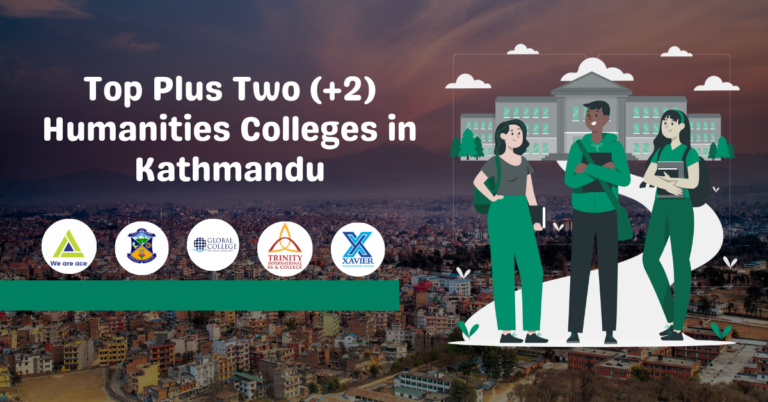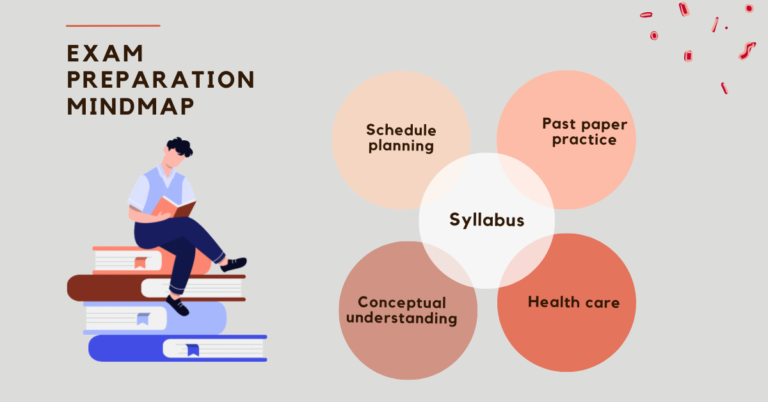Bachelor of Mountain Tourism Management: A Complete Guide
Introduction
What is Bachelor of Mountain Tourism Management (BMTM)?


Bachelor of Mountain Tourism Management (BMTM) is a specialized undergraduate degree tailored for those passionate about mountain tourism, hospitality, and sustainable development in high-altitude environments. This course is offered primarily in Nepal, a country renowned globally for its majestic Himalayan landscapes, including Mount Everest and the Annapurna ranges.
Unlike general tourism or hospitality degrees, BMTM goes deeper into the specifics of mountain ecology, adventure travel, cultural heritage, environmental conservation, and mountain economics. It equips students with practical and theoretical knowledge to professionally manage and promote tourism in mountain regions—a sector that has been the backbone of Nepal’s economy for decades.
This 4-year academic program typically consists of 8 semesters. It blends fieldwork with classroom-based learning and provides direct exposure to trekking routes, mountaineering areas, national parks, and indigenous mountain communities. Students also undertake internships and case studies as part of their learning.
Why BMTM is a Rising Course?
The growing global interest in sustainable travel, adventure tourism, and eco-tourism has increased the demand for professionals who understand mountain tourism dynamics. Nepal, being the ultimate mountain destination, is naturally at the forefront of this opportunity.
With challenges like climate change, over-tourism, and resource depletion becoming prominent, there’s a need for academically trained professionals who can manage tourism sustainably in fragile mountain ecosystems. BMTM addresses these challenges by nurturing professionals who blend environmental responsibility with economic opportunity.
Moreover, as Nepal diversifies its tourism offerings beyond just mountaineering—into culture, wellness, and rural tourism—the relevance of the BMTM program continues to grow. It serves as a bridge between academic theory and field application, preparing students to become tourism entrepreneurs, consultants, conservationists, and government officials.
Understanding Mountain Tourism
Importance of Mountain Tourism
Mountain tourism is more than just trekking and climbing; it encompasses everything from nature exploration, cultural immersion, ecological studies, to economic development in highland areas. Nepal’s mountains are not only natural wonders but also spiritual and cultural landmarks. They attract over a million visitors annually and are responsible for generating billions in tourism revenue.
Mountain tourism creates employment opportunities in remote areas, helps preserve indigenous cultures, supports rural economies, and funds conservation efforts. The Everest, Annapurna, and Langtang regions alone are home to thousands of trekking lodges, guides, porters, and travel operators—all of whom rely on a well-managed tourism industry.
How Nepal is Uniquely Positioned
Nepal stands out in global tourism for a few key reasons:
- Geographical Richness: It has 8 of the 14 highest peaks in the world.
- Cultural Diversity: Mountain areas are home to diverse ethnic groups with unique languages, customs, and religions.
- Ecological Hotspots: Numerous national parks, conservation areas, and world heritage sites exist within mountain regions.
- Affordable and Authentic: Compared to many Western destinations, Nepal offers budget-friendly yet authentic experiences for travelers.
Due to these advantages, Nepal doesn’t just need mass tourism; it needs sustainable and professionally managed tourism. The BMTM course is designed to produce graduates who understand the socio-economic and ecological context of mountain regions, making Nepal’s tourism industry smarter and more resilient.
What is BMTM? Scope, Objectives & Vision
Academic Focus and Structure
The BMTM program is not just another business or tourism course. It is highly interdisciplinary, combining:
- Tourism Management
- Mountain Geography
- Environmental Science
- Cultural Anthropology
- Adventure and Eco-tourism
- Trekking and Mountaineering Studies
The curriculum includes both theoretical courses and practical field training. Students may learn about hospitality operations in mountain lodges, sustainable waste management on trekking routes, and even crisis management during mountaineering expeditions.
There are also workshops, excursions, guest lectures from tourism professionals, and industry-level internships to enhance learning. Students are evaluated through exams, project works, presentations, and field reports.
Long-term Vision of the Program
The primary goal of the BMTM program is to create competent human resources for the sustainable development of mountain tourism. The broader vision includes:
- Promoting responsible tourism in sensitive ecosystems
- Encouraging entrepreneurship in highland tourism
- Bridging the gap between traditional tourism practices and modern needs
- Integrating indigenous knowledge into tourism development
- Positioning Nepal as a global hub for mountain tourism education
As tourism becomes more complex and globalized, Nepal needs professionals who can take leadership roles both locally and internationally. The BMTM program is a stepping stone for such careers, whether in government policy-making, NGO sectors, adventure tourism companies, or international tourism boards.
Eligibility Criteria for BMTM
Academic Requirements
To enroll in a BMTM program in Nepal, students must meet certain educational standards:
- Minimum Qualification: Completion of 10+2 (Higher Secondary Education) or equivalent in any stream from a recognized board.
- Minimum Grade Requirement: Generally, students should have at least a ‘C’ grade in all subjects or a second division (45% or above aggregate).
- English Proficiency: Since the course is taught in English, basic proficiency is necessary.
Some universities may also accept equivalent foreign qualifications provided they are recognized by the relevant education authorities in Nepal.
Entrance Exams and Other Criteria
Most universities conduct an Entrance Examination which includes:
- General Knowledge
- English Comprehension
- Tourism and Geography Awareness
- Logical Reasoning
Some colleges may also conduct interviews and group discussions as part of the admission process. Students with prior experience in tourism or community development may be given additional weightage.
Also, since fieldwork and physical travel are integral to the course, students should be physically fit and mentally prepared for trekking, hiking, and rural visits.
Top Universities and Colleges Offering BMTM
Affiliated and Autonomous Institutions
Several top universities offer the BMTM program under their faculties of management or tourism. The main providers include:
- Tribhuvan University (TU) – Faculty of Management
- Mid-Western University (MWU) – School of Management
- Pokhara University (PU) – Faculty of Management Studies
- Purbanchal University – Faculty of Tourism and Hospitality
- Far-Western University
Additionally, numerous private colleges affiliated with these universities also run BMTM programs.
Locations and Admission Intakes
Most BMTM programs begin in the Fall (August–September) and Spring (February–March) intakes. Admission forms are usually announced 2–3 months prior. Popular locations for BMTM colleges include:
- Kathmandu
- Pokhara
- Surkhet
- Ilam
- Dhangadhi
- Dhulikhel
Colleges often have limited seats (30–60), so early application is advised. Facilities like computer labs, trekking gear, tourism resource centers, and mountain training institutes are common features in well-established campuses.
Curriculum and Course Structure of BMTM
Comprehensive Learning with Mountain Focus
The Bachelor of Mountain Tourism Management (BMTM) curriculum is meticulously designed to address the complexities of tourism in mountainous regions. Spanning eight semesters over four years, the course integrates theoretical knowledge with hands-on experience. Students don’t just sit in classrooms—they explore trekking routes, interact with mountain communities, and solve real-world tourism challenges.
The course begins with foundational subjects like Principles of Management, Tourism Geography, and Communication Skills, gradually advancing to specialized topics such as:
- Mountain Tourism Planning & Development
- Sustainable Tourism Practices
- Tourism Economics
- Cultural Heritage & Mountain Societies
- Risk and Crisis Management in Tourism
- Trekking, Hiking, and Eco-Tourism Management
- Tourism Marketing & Digital Promotion
- Environmental Conservation and Climate Change
Elective modules allow students to focus on areas like adventure sports management, ecotourism, or indigenous culture and rituals.
Practical Training and Internships
Hands-on learning is at the heart of the BMTM curriculum. Field visits to national parks, trekking routes (like Everest Base Camp or Annapurna Circuit), and tourism hotspots are a regular part of the program. These help students understand local tourism dynamics, infrastructure limitations, and sustainability issues firsthand.
In their final year, students are required to complete a 3 to 6-month internship with a travel agency, hotel, tourism board, or NGO. This gives them exposure to actual tourism management and operations. A final-year thesis or project work based on primary field research is mandatory, testing their analytical and problem-solving skills.
Admission Process for BMTM Programs
How to Apply
Applying for a BMTM program in Nepal involves several steps. Here’s a breakdown of the typical process:
- Check Eligibility: Ensure you meet the minimum academic and age criteria.
- Entrance Exam Application: Keep an eye on the university or college’s website or notice board for entrance dates.
- Entrance Exam: Appear for the written entrance test which usually covers general knowledge, tourism aptitude, and basic English.
- Interview/Group Discussion: Some institutions conduct interviews to assess your communication skills, confidence, and passion for tourism.
- Merit List & Admission Offer: Based on entrance scores and interviews, shortlisted students are called for admission.
- Document Submission & Fees: Submit academic certificates, citizenship copies, photographs, and pay the initial tuition fee.
Tips for a Successful Application
- Apply early and regularly check announcements from your preferred colleges.
- Prepare for the entrance test using previous year’s questions or mock tests.
- Build basic knowledge of Nepal’s tourism policies, geography, and mountain cultures.
- Draft a personal statement (if required) showing your passion for mountain tourism and community development.
Career Opportunities after BMTM
A Degree with High Altitude Career Potential
Graduating with a Bachelor in Mountain Tourism Management opens up a wide array of career paths—not just in Nepal but globally. This degree is especially attractive to those wanting to work in:
- Tourism and Travel Agencies
- Trekking and Mountaineering Companies
- Adventure and Eco-tourism Firms
- Hotel and Lodge Management
- Tourism Departments and Government Ministries
- Non-Governmental Organizations (NGOs) focused on tourism or conservation
Positions you can apply for include:
- Mountain Tour Operator
- Travel Consultant
- Tourism Officer
- Community Tourism Planner
- Adventure Tourism Guide
- Event Manager
- Lodge or Resort Manager
- Sustainable Tourism Advisor
Some BMTM graduates even start their own travel companies, NGOs, or community-based tourism projects in rural areas.
Higher Studies and Global Opportunities
Students who want to go further academically can pursue:
- Master of Tourism Studies (MTS)
- MBA in Hospitality and Tourism
- M.Sc. in Mountain Ecology or Sustainable Development
- Diplomas or Certifications in Mountaineering, Ecotourism, or Tour Guiding
There are growing opportunities abroad as well—especially in countries like Switzerland, Australia, Canada, and Bhutan—where mountain tourism is a booming industry. A solid foundation in BMTM prepares students for such international careers.
Challenges in Mountain Tourism and How BMTM Addresses Them
Understanding the Real-World Problems
Mountain tourism, while lucrative, brings its own set of challenges:
- Environmental Degradation: Deforestation, garbage disposal, and water pollution in trekking regions.
- Climate Change: Glacial melts and erratic weather patterns affecting trekking safety and accessibility.
- Over-tourism: Crowding in popular routes like Everest Base Camp, leading to resource pressure and cultural dilution.
- Lack of Infrastructure: Poor roads, health services, and communication in remote areas.
- Cultural Exploitation: Loss of indigenous customs and traditions due to commercialization.
How BMTM Prepares Students to Tackle These Issues
Through targeted coursework and field-based learning, BMTM students gain the tools to solve these problems. They are taught sustainable tourism principles—how to reduce carbon footprints, manage waste, and design eco-friendly infrastructure.
Additionally, they study policies and global case studies to understand what works and what doesn’t. Cultural sensitivity is emphasized, so students learn how to promote tourism without harming native traditions. BMTM graduates become advocates for responsible tourism, helping balance development with preservation.
By embedding sustainability and community involvement into the curriculum, the program builds a new generation of tourism professionals who can ensure Nepal’s mountain tourism thrives without destroying its essence.
Government and Private Sector Involvement in BMTM
Support from the Nepalese Government
The Government of Nepal has recognized the importance of academic programs like BMTM in developing skilled manpower for the tourism sector. Through the Ministry of Culture, Tourism and Civil Aviation (MoCTCA), the government supports tourism education and occasionally partners with universities for research, workshops, and policy advocacy.
There are also scholarships available for underprivileged and remote-area students under various governmental programs.
The government also encourages collaborations between academic institutions and tourism development boards, ensuring that the BMTM curriculum aligns with real-world needs.
Role of Private Sector and NGOs
The private tourism industry in Nepal—comprising trekking companies, travel agencies, hotels, and adventure outfitters—plays a vital role in shaping BMTM education. They provide internship placements, field visit support, and guest lectures.
NGOs working in conservation, mountain development, and women empowerment also collaborate with colleges to offer students hands-on projects and volunteering opportunities.
Together, public and private sectors are ensuring that BMTM is not just an academic course, but a career-ready platform for future leaders in mountain tourism.
Student Life and Experiences in BMTM
A Journey Beyond the Classroom
Studying BMTM in Nepal is not your typical college experience. It’s a combination of academics, adventure, community work, and cultural exploration. BMTM students are frequently out in the field—trekking, engaging with local communities, or assisting with sustainable tourism projects in the Himalayas.
Life in a BMTM program involves:
- Frequent Field Trips to places like Everest Region, Annapurna Circuit, Rara Lake, Langtang Valley, and Mustang
- Cultural Immersion where students live with mountain communities and learn their customs
- Workshops and Seminars with industry experts and local entrepreneurs
- Adventure Sports Exposure like hiking, white-water rafting, rock climbing, and mountaineering basics
- Hands-on Conservation Efforts such as clean-up campaigns, biodiversity studies, and heritage documentation
These real-world experiences make students more adaptive, knowledgeable, and confident. They don’t just study about tourism—they live it.
Networking and Community Building
The BMTM programs encourage strong peer interaction and teamwork. Group projects, excursions, and collaborative research create deep bonds among students. Guest lectures from industry leaders and alumni offer networking opportunities that often lead to internships and job offers.
Student clubs and forums dedicated to eco-tourism, adventure tourism, or sustainable development are also active in many campuses. These platforms help students voice their ideas, run campaigns, and build leadership skills.
Student life in BMTM is dynamic, fulfilling, and packed with meaningful learning experiences—preparing graduates not just for a job, but for a mission to shape responsible tourism.
Scholarships and Financial Aid for BMTM
Funding Your Mountain Tourism Education
Recognizing the potential of BMTM in national development, several institutions and organizations offer financial aid to support deserving students. Scholarships are a key factor for students from underprivileged or remote mountain backgrounds who want to pursue this degree.
Types of Scholarships Available
- Merit-Based Scholarships: Awarded to students with excellent academic records in their +2 or entrance exams.
- Need-Based Scholarships: For economically disadvantaged students, often offered by universities and development NGOs.
- Government Scholarships: Provided through the Ministry of Education or MoCTCA under quotas for marginalized communities.
- Private Sector Support: Some trekking agencies, hotels, and tourism boards sponsor students in exchange for service commitments.
- University-Funded Aids: Tribhuvan University, Pokhara University, and others offer internal scholarship schemes.
How to Apply
- Check the scholarship notice when applying for admission.
- Fill out separate scholarship forms if required.
- Submit supporting documents—like income statements, recommendation letters, or caste certificates.
- Appear for scholarship interviews or written tests (if applicable).
With tuition fees for BMTM programs ranging from NPR 100,000 to NPR 500,000 (depending on institution), scholarships significantly ease the financial burden. Many colleges also allow installment payments or part-time job opportunities for students.
Differences Between BMTM and General Tourism Management Degrees
Why BMTM is More Than Just Tourism Studies
While many universities offer Bachelor’s degrees in general Tourism and Hospitality Management, the BMTM course stands apart because of its specific focus on mountain environments and high-altitude tourism. Here’s how BMTM differs:
| Feature | General Tourism Management | BMTM |
|---|---|---|
| Geographical Focus | Urban, coastal, general areas | Mountainous and highland regions |
| Curriculum Topics | Hospitality, travel operations, business | Mountain ecology, trekking, cultural anthropology |
| Field Visits | Cities, airports, resorts | Trekking routes, national parks, rural villages |
| Target Jobs | Hotels, airlines, travel agencies | Trekking companies, NGOs, conservation, rural tourism |
| Adventure Focus | Limited | Strong focus on trekking, hiking, mountaineering |
BMTM is not just about managing tours—it’s about managing ecosystems, heritage, risks, and people in some of the most challenging and breathtaking terrains on Earth. If your passion lies in the mountains, this is the degree that aligns with your goals.
Success Stories of BMTM Graduates
Real-World Impact by Alumni
Over the years, BMTM graduates from Nepal have made significant strides both at home and internationally. From launching eco-friendly trekking agencies to working for international NGOs, their careers reflect the course’s power to transform lives.
Notable Success Examples:
- Pema Sherpa (Pokhara University): Co-founder of a sustainable trekking firm that employs only local guides and promotes zero-waste expeditions.
- Ritika Gautam (TU Graduate): Works with UNDP Nepal on eco-tourism planning in the Himalayan buffer zones.
- Kiran BK (Mid-Western University): Runs a community-based tourism homestay project in Rolpa that supports over 60 local families.
- Ramesh Rai: Tourism Officer at the Ministry of Tourism, specializing in mountain tourism policies and training.
These stories highlight that BMTM isn’t just about academics—it builds change-makers, leaders, and entrepreneurs.
Future of Mountain Tourism and the Role of BMTM
Looking Ahead: A Thriving Yet Fragile Industry
Mountain tourism is evolving rapidly. Post-pandemic tourism trends show a shift towards nature, solitude, and sustainability—all of which position Nepal’s mountain tourism for major growth. At the same time, climate change, infrastructure deficits, and cultural erosion pose real threats.
BMTM graduates will play a critical role in shaping this future. Their training allows them to innovate, adapt, and lead Nepal’s tourism into a sustainable era. From creating climate-resilient tourism models to designing inclusive community tourism frameworks, they are the future stewards of the Himalayas.
Global Trends and Opportunities
- Rise of wellness and spiritual tourism in mountain regions
- Use of digital marketing and virtual tourism tools
- Increased international funding for sustainable tourism
- Growth in mountain sports and winter tourism
BMTM equips students with the tools, mindset, and global perspective to ride these waves successfully while protecting the core values of Nepal’s mountain culture.
Conclusion: Why BMTM is the Degree of the Future
Bachelor of Mountain Tourism Management (BMTM) is more than just a course—it’s a calling for those who dream of a career in the heights of the Himalayas. In a country like Nepal, where mountains aren’t just landscapes but lifelines, the need for trained professionals in tourism is critical. BMTM not only equips students with business acumen and tourism knowledge but also fosters a deep understanding of mountain ecology, local culture, and sustainability practices.
The future of tourism in Nepal depends on how well it balances growth with responsibility. Overcrowded trails, environmental degradation, and cultural commercialization are real threats. This is where BMTM graduates come in—as problem solvers, entrepreneurs, policymakers, and eco-warriors who can reshape the tourism narrative.
Whether you’re an aspiring tourism entrepreneur, a nature lover, or someone passionate about cultural preservation, BMTM offers the tools and opportunities to make a lasting impact. With increasing global attention on sustainable tourism and climate resilience, this degree opens doors not only in Nepal but around the world.
If you’re ready to turn your passion for the mountains into a purpose-driven career, BMTM is the trail you should follow.
FAQs
1. Is BMTM a good career option?
Yes, BMTM is a strong career option, especially given Nepal’s reliance on mountain tourism. It provides practical skills for jobs in trekking companies, NGOs, government, and even international travel organizations.
2. What is the average salary after completing BMTM?
Fresh graduates can earn anywhere between NPR 15,000 to 40,000 per month in entry-level roles. With experience or entrepreneurship, earnings can significantly increase, especially in tourism hubs.
3. Can BMTM graduates work abroad?
Absolutely. With tourism being a global industry, BMTM graduates can pursue opportunities in countries like Switzerland, Bhutan, Canada, and New Zealand, especially in mountain or adventure tourism sectors.
4. What are the challenges faced during BMTM studies?
The program includes physically demanding fieldwork, travel to remote locations, and academic projects. Time management, adaptability, and a genuine interest in mountain tourism are essential.
5. How is BMTM different from Hotel Management?
Hotel Management focuses on hospitality services within hotels and resorts. BMTM is broader, covering sustainable tourism, trekking, adventure tourism, and mountain conservation with both academic and field training components.







